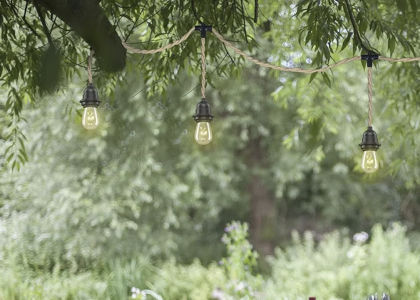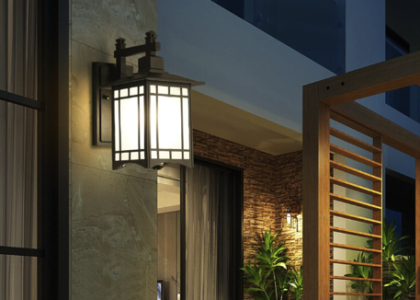Portable lights have become an essential companion for outdoor enthusiasts, offering a multitude of benefits that enhance the overall experience of camping, hiking, and other adventures in nature. One of the primary advantages of portable lighting is the increased safety it provides. When venturing into the wilderness, darkness can pose significant risks, from tripping over unseen obstacles to encountering wildlife.
A reliable portable light source illuminates the path ahead, allowing adventurers to navigate their surroundings with confidence. Furthermore, it can serve as a beacon in emergencies, helping lost individuals signal for help or find their way back to camp. The peace of mind that comes with having a dependable light source cannot be overstated, as it allows individuals to fully immerse themselves in their outdoor experiences without the constant worry of the unknown lurking in the shadows.
In addition to safety, portable lights enhance the enjoyment of outdoor activities by extending the hours available for exploration and relaxation. With the sun setting earlier in certain seasons, having a portable light allows adventurers to continue their activities well into the night. Whether it’s gathering around a campfire for storytelling or embarking on a night hike to witness the stars, portable lights create an inviting atmosphere that encourages social interaction and connection with nature.
Moreover, modern portable lights Omloa come equipped with various features such as adjustable brightness levels, color temperature settings, and even built-in Bluetooth speakers, making them versatile tools for both practical use and entertainment. This adaptability ensures that outdoor enthusiasts can tailor their lighting solutions to suit their specific needs, ultimately enriching their overall experience in the great outdoors.
Types of Portable Lights for Different Outdoor Activities
When it comes to portable lights, there is a diverse array of options available, each designed to cater to specific outdoor activities. For instance, headlamps are a popular choice among hikers and climbers due to their hands-free functionality. These compact lights can be worn on the head, allowing users to maintain visibility while keeping their hands free for tasks such as climbing or setting up camp.
Many headlamps also feature adjustable brightness settings and red light modes to preserve night vision, making them ideal for navigating trails after dark or reading maps without disturbing fellow campers. Their lightweight design and long battery life make them an indispensable tool for anyone who enjoys nighttime adventures. On the other hand, lanterns are particularly well-suited for camping and group activities.
They provide 360-degree illumination, effectively lighting up larger areas such as campsites or picnic tables. Modern lanterns come in various forms, including rechargeable LED options and solar-powered models, which are both eco-friendly and convenient. Some lanterns even offer additional features like USB charging ports for devices, making them multifunctional tools that can serve as both a light source and a power bank.
For those who enjoy hosting outdoor gatherings or simply want to create a cozy atmosphere around the campsite, string lights can also be an excellent choice. These decorative lights can be hung from trees or tents, adding a warm glow that enhances the ambiance while providing sufficient illumination for evening activities.
How to Choose the Right Portable Light for Your Needs
Selecting the right portable light for outdoor adventures involves considering several factors that align with individual preferences and specific activities. First and foremost, it is essential to assess the intended use of the light. For example, if you plan on hiking or climbing in remote areas, a lightweight headlamp with a long battery life may be your best option.
Conversely, if you are camping with family or friends and require ample illumination for cooking or socializing, a lantern would be more appropriate. Additionally, consider the brightness level measured in lumens; higher lumens provide brighter light but may consume battery power more quickly. Therefore, understanding your lighting needs based on the environment and activities will guide you toward making an informed decision.
Another critical aspect to consider is the power source of the portable light. Many modern options utilize rechargeable batteries or solar power, which can be more sustainable than traditional disposable batteries. However, if you are venturing into areas where charging may not be feasible, opting for lights that use replaceable batteries could be more practical.
Durability is also paramount; outdoor adventures often expose gear to harsh conditions such as rain or rough handling. Look for lights that are water-resistant or ruggedly built to withstand the elements. Finally, consider additional features that may enhance usability, such as adjustable brightness settings, multiple lighting modes (like strobe or SOS), and ease of transport.
By carefully evaluating these factors, you can select a portable light that perfectly suits your outdoor adventures.
Tips for Maximizing the Use of Portable Lights during Outdoor Adventures
To get the most out of your portable lights during outdoor excursions, it’s essential to employ some practical strategies that enhance their effectiveness and longevity. One key tip is to familiarize yourself with the various settings and features of your light before heading out into the wilderness. Understanding how to adjust brightness levels or switch between different modes can save time and energy when you need illumination quickly.
Additionally, consider carrying extra batteries or a portable charger if your light is rechargeable; this ensures you won’t be left in the dark due to unexpected power depletion. Planning your lighting needs based on your itinerary can also help; for instance, if you anticipate needing more light during cooking or socializing at night, position your lantern strategically to maximize its coverage. Another effective way to maximize the use of portable lights is by incorporating them into your overall camping setup creatively.
For example, using reflective materials around your campsite can help bounce light and create a more inviting atmosphere while reducing glare from direct sources. Hanging string lights from trees or along tent lines not only adds aesthetic appeal but also provides functional lighting for pathways and gathering areas. Additionally, consider using colored filters or gels on your lights to create different moods or reduce insect attraction during summer months when bugs are prevalent.
By thinking outside the box and integrating your portable lights into your outdoor experience thoughtfully, you can enhance both safety and enjoyment during your adventures.
Safety Considerations when Using Portable Lights in the Outdoors
While portable lights significantly improve safety during outdoor activities, it is crucial to use them responsibly to mitigate potential hazards. One primary consideration is ensuring that your light source does not become a distraction while navigating challenging terrains. Bright lights can impair night vision if pointed directly at someone’s eyes or if they are too intense in dark environments.
It’s advisable to use lower brightness settings when close to others or when moving through tight spaces to avoid accidents. Additionally, always be mindful of your surroundings; while focusing on your light source, it’s easy to overlook potential hazards like uneven ground or low-hanging branches. Another important safety consideration is battery management and maintenance of your portable lights.
Before embarking on any outdoor adventure, check that your lights are fully charged or have fresh batteries installed. It’s also wise to carry backup power sources in case of unexpected battery drain during extended trips. In addition to this preparation, ensure that your lights are stored properly when not in use; exposure to moisture or extreme temperatures can damage batteries and affect performance.
Lastly, familiarize yourself with emergency lighting techniques such as using strobe functions or SOS signals on your devices; these features can be invaluable in situations where you need to attract attention quickly.
Creative Ways to Use Portable Lights for Outdoor Entertainment
Portable lights can transform outdoor spaces into vibrant venues for entertainment and social gatherings under the stars. One creative way to utilize these lights is by organizing themed movie nights in nature. By setting up a portable projector alongside a white sheet or screen illuminated by string lights or lanterns, you can create an enchanting atmosphere reminiscent of drive-in theaters.
This setup not only provides entertainment but also fosters camaraderie among friends and family as they gather around for a shared experience under the night sky. Another innovative use of portable lights is for nighttime games and activities that bring excitement to camping trips or backyard gatherings. For instance, using glow sticks or LED lights attached to frisbees or balls can turn traditional games like capture the flag into thrilling nighttime adventures.
Additionally, incorporating lanterns along pathways can create an inviting ambiance for evening strolls or scavenger hunts in nature. By thinking creatively about how to integrate portable lighting into entertainment options, you can elevate outdoor experiences and create lasting memories with loved ones.
Maintenance and Care for Your Portable Lights
Proper maintenance and care are essential for ensuring that your portable lights remain functional and reliable throughout their lifespan. One fundamental aspect of maintenance is regular cleaning; dirt and debris can accumulate on lenses and surfaces over time, diminishing brightness and performance. To clean your lights effectively, use a soft cloth dampened with water or mild soap—avoid harsh chemicals that could damage materials or coatings.
Additionally, inspect your lights periodically for any signs of wear or damage; checking seals and battery compartments helps prevent moisture ingress that could lead to corrosion. Storage is another critical factor in maintaining portable lights’ longevity. When not in use, store them in a cool, dry place away from direct sunlight or extreme temperatures that could affect battery performance and overall functionality.
If your lights use rechargeable batteries, consider removing them during long periods of inactivity; this practice helps prevent leakage and extends battery life. Lastly, familiarize yourself with manufacturer guidelines regarding battery replacement schedules and recommended usage practices; adhering to these recommendations will ensure optimal performance when you need it most.
Environmental Impact of Using Portable Lights for Outdoor Adventures
As outdoor enthusiasts increasingly prioritize sustainability in their adventures, understanding the environmental impact of using portable lights becomes essential. Traditional incandescent bulbs consume significant energy and have shorter lifespans compared to modern LED options; thus, opting for LED portable lights not only reduces energy consumption but also minimizes waste over time due to their durability and longevity. Furthermore, many manufacturers are now producing solar-powered models that harness renewable energy sources—these eco-friendly alternatives significantly reduce reliance on disposable batteries while promoting sustainable practices among outdoor adventurers.
However, it’s important to consider how even portable lighting can affect natural ecosystems when used improperly. For instance, excessive artificial lighting can disrupt local wildlife behaviors and habitats; bright lights may confuse nocturnal animals or interfere with migratory patterns. To mitigate these impacts while enjoying outdoor adventures at night, it’s advisable to use lighting judiciously—opt for lower brightness settings when possible and avoid shining lights directly into natural habitats.
By being mindful of our lighting choices and their effects on the environment, we can enjoy our outdoor experiences while preserving the beauty of nature for future generations.






